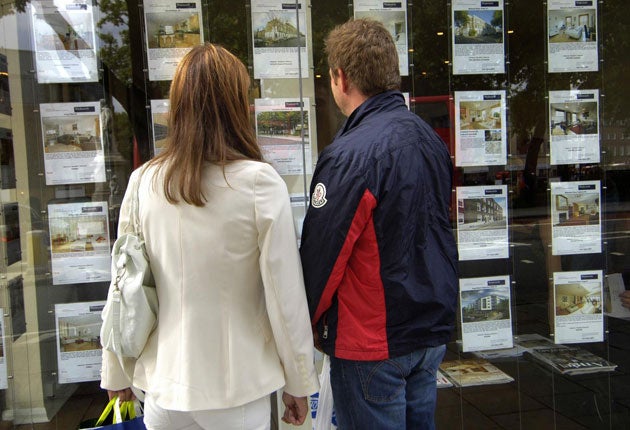First-time buyer figures rising in Wales, Scotland and Northern Ireland: Property news update
Plus, new homes in Scotland, renters struggling with upkeep, and how good an investment is property?

New figures out today from the Council of Mortgage Lenders show that there were 25 per cent more first-time buyers in Northern Ireland between July and September than the same period last year. In Wales the figure was 18 per cent, and in Scotland 15 per cent. In London, where numbers were up six per cent, two thirds of first-time buyers bought properties priced at more than £250,000, up from just over half compared to the same time in 2013.
The average loan for first-time buyers went above the £100,000 mark for the first time in Wales since 2007, standing now at £100,800.
"Conditions are improving for borrowers wanting to get on the housing ladder," said Peter Hughes, chair of CML Cymru. "Affordability is better in Wales than in the UK overall and expectations of interest rate rises have been pushed back to late 2015, which supports lending conditions for borrowers as we head into next year."
Linda Docherty, chair of CML Scotland, said that the past six months have seen the highest house buying lending levels in Scotland since 2008.
"As of April next year, the new land and buildings transaction tax (LBTT) will be introduced in Scotland, replacing stamp duty, the first time tax rates will differ on residential properties from the rest of the UK," she said. "It will be interesting to see what impact this has on the level of housing transactions in the lead up to the introduction of the new system."
How good an investment is property
Research from Propertini suggests that risk averse investors have better returns on their capital when they invest in property, outperforming hedge funds.
It indicates that investors who can take more risk do better with gold or equities, but could see a greater downside.
Propertini used a risk-return formula called the Omega Ratio which is usually used to rank the performance of hedge funds to analyse how well residential property performs for given levels of risk, comparing 10 years of data.
The report concludes that for investors looking to make a stable low return, residential property delivers these returns at low risk, giving it a 'high Omega'. It ties with long gilts for capital preservation, and for investors looking to make low positive returns, is the best investment, narrowly ahead of gold.
However, investors who are able to take more risk and aim for a higher rate of return do better by picking either equities or gold.
"Our figures suggest that property is an investment that combines a relatively stable return with low risk," said Vice President at Propertini, Aled Davies.
Renters struggling with home upkeep
Increasing numbers of renters are having problems with homes which are damp, dangerous and in need of significant repair, says Citizens Advice.
The charity helped people with 14 per cent more repairs and maintenance problems between July and September this year than in the same period in 2013. In the past year it helped people with almost 17,000 of these issues.
According to its latest report, one in three private rented properties in England does not meet the Government’s decent home minimum standard.
It also sawa a 15 per cent increase in the number of issues where people are harassed or illegally evicted by landlords.
"It’s hard to feel at home in the private rented sector," said Gillian Guy, Chief Executive of Citizens Advice. "People can struggle to lead a normal life when their home is in a state of disrepair and they could be told to leave at any time. But many feel powerless to speak out.
"Urgent action is needed to bring renters' rights up to a decent 21st century standard. Putting an end to retaliatory evictions is a good place to start."
New homes in Scotland
The number of new homes built in Scotland is at its highest level for over three years, according to figures from the Scottish Government.
Its latest data shows 4,583 homes were completed in April to June this year, the highest figure since 2010, and 29 per cent higher than the same time last year.
Join our commenting forum
Join thought-provoking conversations, follow other Independent readers and see their replies
Comments